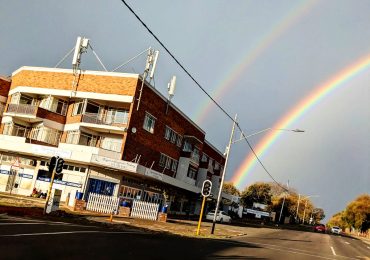 Welcome to the sixth issue of The Johannesburg Review of Books. Half a dozen and going strong!
Welcome to the sixth issue of The Johannesburg Review of Books. Half a dozen and going strong!
In this edition, Wamuwi Mbao reviews Teju Cole’s new book Blind Spot, declaring it a ‘work of quiet intensity’. Athambile Masola looks at two recently published biographies, of Pixley ka Seme and Charlotte Maxeke, drawing conclusions about how women’s histories are in danger of becoming ‘insignificant back roads’ in the geography of South Africa’s decolonised national memory.
The JRB’s Contributing Editor Bongani Madondo remembers the magic of The Village Voice, in the wake of the announcement of the end of its print edition, while our City Editor Niq Mhlongo pens a love letter to his home, Soweto (and reveals the best spots to visit).
In our long interview this month, The JRB’s Editor, Jennifer Malec, sits down with Ayọ̀bámi Adébáyọ̀ to talk about her debut novel, Stay With Me, which was shortlisted for the Baileys Women’s Prize for Fiction (and was the last-ever book to be reviewed by Michiko Kakutani for the New York Times).
Two essays show the startling relevance of the not-so-new: Mbali Sikakana reads Fran Ross’s forgotten black feminist satire Oreo, and Sanya Osha considers how to reread legendary Nigerian author Amos Tutuola.
In another edition of our Temporary Sojourner series, Contributing Editor Efemia Chela travels to the lush Sierra Leone of the nineteen-sixties with Aminatta Forna’s The Memory of Love.
We’re honoured to feature previously unpublished poetry by Ingrid de Kok, as well as original portraits of Rafique Gangat and Aja Monet by our Photo Editor Victor Dlamini.
Exclusive to The JRB, we have an excerpt from Trade Secrets, the new Short Sharp Stories anthology, in Ntsika Gogwana‘s Commended story, ‘Home Cooked’, which judge Phakama Mbonambi calls a ‘powerful read’.
Zukiswa Wanner makes her JRB debut this month, with a piece that documents the labyrinthine bureaucracy an African traveller—even a fairly famous one—experiences in Eastern Europe.
In Francophone news, listen to a new Radio France Internationale radio play featuring Le Ventre de l’Atlantique by Senegalese author Fatou Diome; or read about the Sub-Saharan African Spring, which Alain Mabanckou believes is imminent on the continent.
Our cover image this month is excerpted from the book UP UP: Stories of Johannesburg’s Highrises, which is published by Fourthwall Books. Find out more about the book here.
Here’s the complete breakdown of Vol. 1, Issue 6, which you will also find on our issue archive page:
Reviews
- Disrupting the solipsism of the personal photograph: Wamuwi Mbao reviews Teju Cole’s new book, Blind Spot
- Making space for women in South Africa’s political memory, or, the case of the non-intersection of Pixley ka Seme and Charlotte Maxeke Streets
- Brilliant, hilarious, eerily contemporary: Mbali Sikakana reflects on Fran Ross’s forgotten black feminist novel Oreo
Interviews
Essays
- A stranger in ‘the Village’: Bongani Madondo remembers the magic of The Village Voice in print
- [Temporary Sojourner] False memories and true love in Sierra Leone: Efemia Chela reads Aminatta Forna’s The Memory of Love
- A literary Sarah Baartman: Sanya Osha considers the need for intellectual decolonisation in rereading Amos Tutuola
Travel
- ‘Page 19’: A border tale of visas and Eastern Europe by Zukiswa Wanner
- [City Editor] Soweto, heart of the nation: Niq Mhlongo takes a tour of his home
Fiction
Poetry
Photography
News
- ‘The youth cannot be fooled’: Alain Mabanckou believes a Sub-Saharan African Spring is imminent
- New Ça va, ça va le monde! radio play features The Belly of the Atlantic by Senegalese author Fatou Diome
- [The JRB Daily] Obituary: Professor Phil Bonner (1945—2017)
- [The JRB Daily] JM Coetzee reads a new story, ‘The Glass Abattoir’, and announces a new book to feature Elizabeth Costello
- [The JRB Daily] 2017 Man Booker Prize shortlist announced





